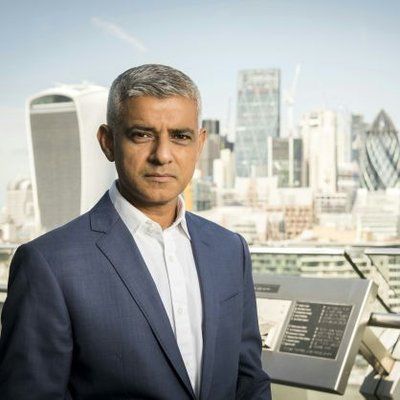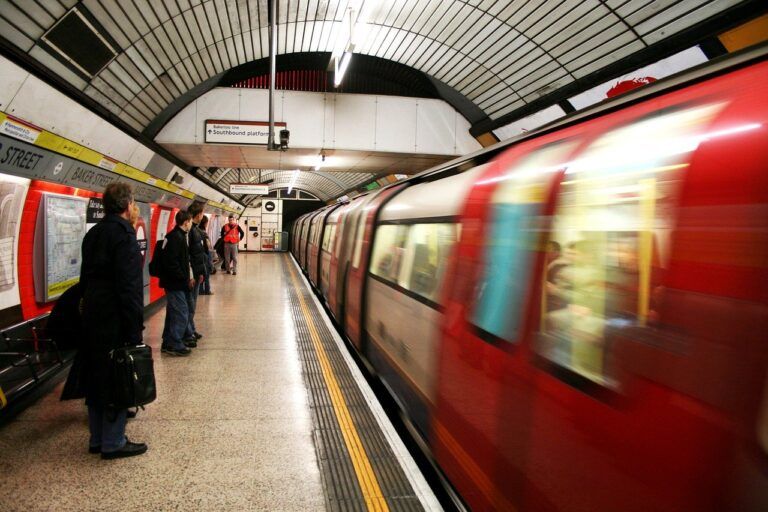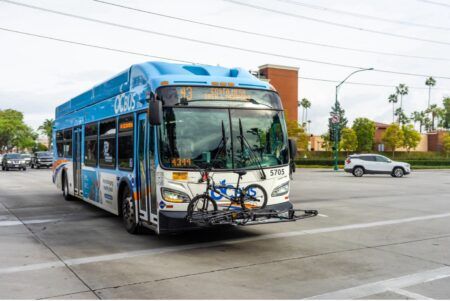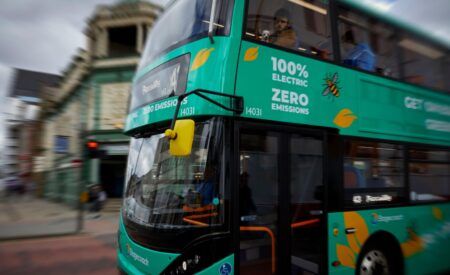Transport for London (TfL) has secured a £1.6bn (US$2bn) bailout after passenger numbers on the capital’s Underground and buses crashed by 90% at the height of the ongoing coronavirus lockdown. But now a war of words has erupted as to the state of TfL’s underlying finances.
UK Transport Secretary Grant Shapps issued a written statement to parliament in which he said that “an important secondary factor” in the need for a bailout “was the pre-existing poor condition of Transport for London’s (TfL) financial position as a result of decisions made over the last four years”.
 But London Mayor Sadiq Khan hit back, saying: “TfL’s finances were in much better shape immediately before Covid-19 than the mess I inherited from the prime minister when he left City Hall.” PM Boris Johnson was the previous London Mayor. “The only reason TfL is now in financial difficulties, just like every transport operator, is because our fares income has fallen by 90% during lockdown.”
But London Mayor Sadiq Khan hit back, saying: “TfL’s finances were in much better shape immediately before Covid-19 than the mess I inherited from the prime minister when he left City Hall.” PM Boris Johnson was the previous London Mayor. “The only reason TfL is now in financial difficulties, just like every transport operator, is because our fares income has fallen by 90% during lockdown.”
In other quarters commentators have questioned the current UK government’s policy of making TfL self-funding, citing the coronavirus crisis as an illustration of why public funding will always be needed to ensure a world-class transport system in London.
The emergency funds were secured by Khan, and it is estimated that they should keep the city’s public transport system running until September. Even so, fares are now set to rise at 1% above inflation.
Now the challenge is for TfL to return to full service, as the country attempts to get more people back to work. Only a partial service has been operating for nearly two months since the UK first went into lockdown on 23 March 2020.
“I welcome this support from government which will help us continue to get London moving and working again, safely and sustainably,” says London’s transport commissioner Mike Brown MVO. “London’s transport network is absolutely fundamental to the economic, social and environmental health of the Capital. Throughout the pandemic, transport workers have played a heroic role in the response to the virus -ensuring NHS and care staff have been able to get to work and save lives.
“We have worked closely with the government and Mayor as part of the national effort to fight the virus, rapidly reducing passenger numbers to levels not seen for 100 years. This has meant that our fare and other revenue has fallen by 90 per cent.
“We now need to help London recover as restrictions on movement are gradually eased, with public health and more active forms of travel at the forefront of our thinking.
“To maintain social distancing wherever possible, the transport network needs to operate differently during this extraordinary period. In line with advice from the government and Mayor we are encouraging people who can work from home to continue to do so to enable the people who must travel to do so safely. We are asking everyone to try and avoid the busiest times to support social distancing wherever possible, to wear non-medical face coverings when they do need to use public transport, and to walk and cycle whenever possible. We are providing extensive new cycling and walking facilities to support journeys by these means.
“Enormous challenges remain, including agreeing longer term sustainable funding for transport in the Capital. In the meantime, we will continue to do everything in our power to help deliver a successful recovery for our great city.”





